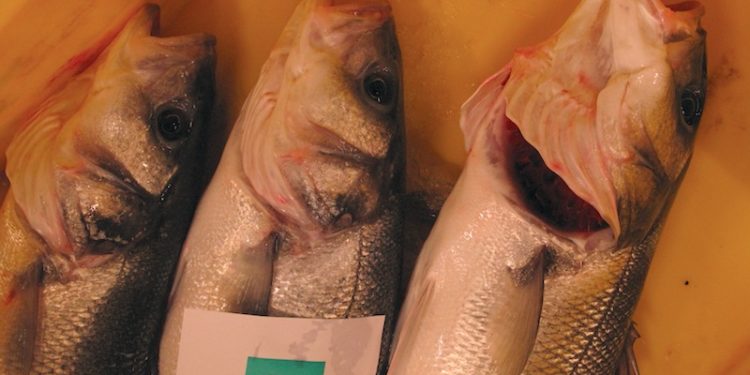According to French small-scale fishing group Plateforme Petite Pêche, there have been consistently poor catches for French inshore fishermen along the whole of the northern coast of France this year, with some giving up and taking their boats out of the water, or switching – if they can – to pollock or mackerel.
Plateforme Petite Pêche reports that further south in the Bay of Biscay there was some good fishing in the spring, while the rest of 2018 has been poor and fishermen are dubious about proposals to set a 1800 tonne quota for 2019.
‘From a biological point of view, it seems completely absurd to raise the catch limit on a stock that is still in danger of collapse,’ a spokesman for Plateforme Petite Pêche said, commenting that the CFP requires stocks to be above MSY level.
‘It seems to us essential to maintain the same measures as in 2018, apart from the allowance of one bass per day for leisure craft.’
‘Unlike trawlers and gill netters which catch bass mostly in winter when it is in schools, the trollers fish through the whole year. They therefore have an extremely detailed knowledge of their behaviour and their preferred areas throughout practically the whole year. But this year, despite this knowledge and efficient fishing techniques, the bass were not there.’
Plateforme Petite Pêche states that the decisions that will be made in December will have serious consequences for the bass and for the survival of the small-scale fleet.
‘The priority objective must be to restore the stock as soon as possible because the trolling vessels have been in a disastrous economic situation for more than three years. We fully understand the fury of the trawlers and gill netters who have had to discard many dead bass in the water this winter, but we consider it necessary to take into account first and foremost the socio-economic situation of fishing operators. Moreover, the extremely sharp conflict between English and French fishermen on the issue of scallops in the Seine Bay has left us a bitter taste of what Brexit could bring next March,’ Plateforme Petite Pêche’s spokesman said.
According to Plateforme Petite Pêche, there is also a need for harmonisation, as the 48° line does not fit in with regulatory and commercial factors, while having two different landing sizes of 38cm and 42cm does not work, and nor does having a closed season in the north and not in the south.
‘If ICES considers that the stock is doing much better, then it would seem much more useful to lower the minimum size to 40cm rather than making an unreasonable increase in the annual catch limit. The trollers are deeply concerned about the decrease in bass in the Bay of Biscay and are calling for the urgent establishment of a harmonised closed season in both northern and southern areas in February and March.’
Plateforme Petite Pêche is also concerned over recent proposals in the European Parliament’s report on the future multiannual Western Waters Plan with a ban on catching bass and pollack between February and the end of April, which is not acceptable.
‘Pollack is the main carryover species for the trollers, which has helped many to survive in recent years. However, the situation of the pollack is also worrying and it is necessary to improve the management. Before implementing a three-month catch ban, it would seem more reasonable to introduce less painful measures for all commercial fishing.’









